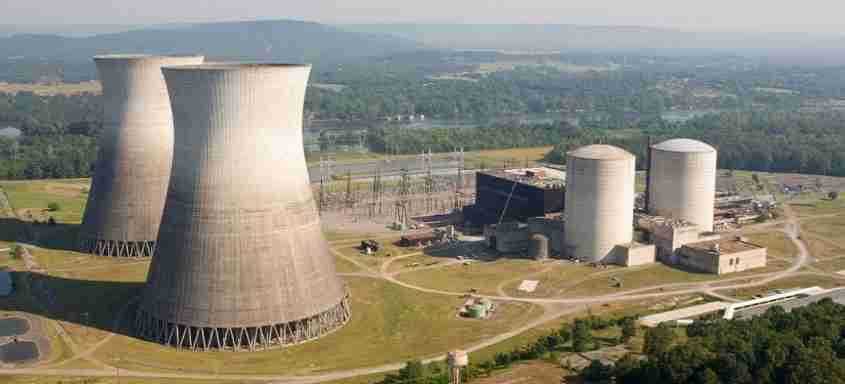Nuclear Reactors 682 - Corruption And Influence Peddling Suspected In Sale Of Bellefonte Nuclear Power Plant
Bellefonte_Nuclear_Power_plant.jpg

I have spent a lot of time cataloguing the problems with nuclear power in this blog. Along the way, I have discussed incompetence and the ignoring of regulation by nuclear power plant operators. I have written about failure of nuclear regulatory agencies both in the U.S. and abroad. I have not spent a lot of time on corporate corruption and the political process involved in the granting of nuclear licenses, loans, etc. Today, I am going to drill down into one instance of blatant corporate and governmental corruption in the U.S. nuclear industry.
Back in 2016, real estate mogul and prolific political donor Franklin Haney contributed a million dollars to President Donald Trump’s inauguration which is now under investigation by Congressional committees and federal prosecutors. Their concern is whether or not donors received favors for their donations.
Hanley made his donation while he was working to gain regulatory approval and financial support from the U.S. government for his long-shot bid to purchase and complete the mothballed Bellefonte Nuclear Power Plant located in northeastern Alabama. Two years have passed and Hanley has not closed his deal.
Michael Cohen, Trump’s personal attorney, is now serving time in federal prison for lying to the federal government, tax evasion and campaign finance violations. Cohen has provided information to investigators regarding Haney, his son and business associate, Frank Haney Jr. concerning the nuclear plant project. Haney had employed Cohen briefly to assist him raising money for the Bellefonte project from potential investors. These investors included the Middle Eastern country of Qatar.
Federal prosecutors are investigating whether foreigners illegally contributed to Trump’s inauguration committee. Last year, Manhattan federal prosecutors issued a subpoena for a wide range of financial records from the inauguration committee. This subpoena includes any “communications regarding or relating to the possibility of donations by foreign nationals.” The committee denies any wrong-doing and claims that all its contributions are legal and accounted for.
Haney has previously been accused of using political gifts to cultivate influence. In the late 1990s, an investigation by House Republicans charged that Haney used his money and his political influence to get the Federal Communication Commission to move into a building that Haney had a major stake in. Haney denied any wrong-doing and the Justice Department dropped the case.
In 1999, Haney was charged with channeling about a hundred thousand dollars in illegal contributions to President Bill Clinton, Vice President Al Gore and other politicians. He was ultimate acquitted of these charges. According to a federal prosecutor, Haney is a sophisticated fundraised who uses his access to powerful politicians such as Clinton and Gore to impress potential business clients.
Haney’s family real estate business donated hundreds of thousands of dollars in 2013 and 2015 to PACs that supported Alabama Governor Robert Bentley. Bentley then recommended that a nuclear plant that Haney wanted to buy be put up for sale by the Tennessee Valley Authority (TVA). Haney also contributed to a nonprofit that was started for the purpose of promoting Bentley’s agenda. Bentley resigned in 2017 as he faced impeachment proceedings because he had had an affair with one of his aides.
A tentative Bellefonte sale in November of 2016 included two uncompleted nuclear power reactors and their cooling towers, several other buildings and over a thousand acres of land adjacent to the Tennessee River. Haney’s Nuclear Development LLC put down twenty-two million dollars and had a deadline of 2018 to complete the one hundred and eleven million dollar deal. The day before the deadline on November 29, the TVA cancelled the deal. They said that Haney’s company did not have regulatory approval. Haney filed a breach of contract lawsuit.
Five months have passed since Haney’s company submitted its request to transfer construction permits and was told that it had to submit more documents. A nuclear expert said that the delays are partly a result of skepticism on the part of the regulatory agency about the integrity and competence of Haney’s company. With a majority of Trump appointees on the regulatory board, they will probably approve Haney’s deal because of Trump’s commitment to the expansion of the U.S. nuclear fleet. Haney has also sought financial assistance from the U.S. Department of Energy which declined to comment on the deal.